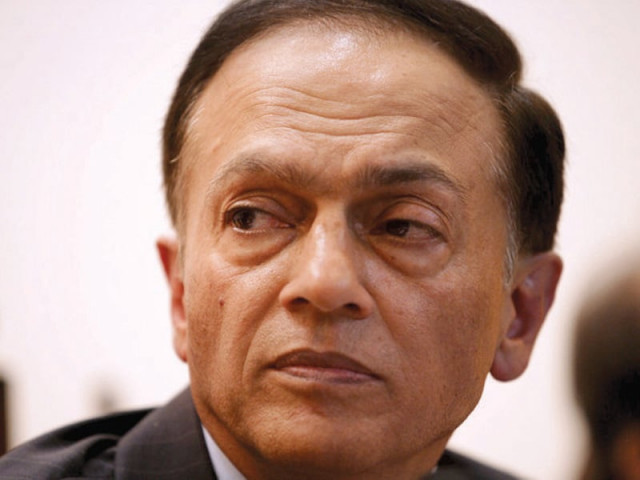Supporting role: SBP acts as a lifeline for federal budget
Decision to stop injection may lead to downgrade of credit ratings: governor.

Supporting role: SBP acts as a lifeline for federal budget
Any decision to stop liquidity injection and financing the federal government’s budget may eventually result into a downgrade of Pakistan’s credit ratings and collapse of financial institutions, said State Bank of Pakistan Governor Yaseen Anwar here on Monday.
The governor’s statement came following a recent report of the International Monetary Fund that criticised Pakistan’s central bank for becoming “too accommodative” in its efforts to finance the federal government budget, both directly and indirectly, and also lowering key interest rate.
“Yes we have been injecting liquidity and financing the budget deficit because we do not have choices,” said Anwar while testifying before the Senate Standing Committee on Finance. The committee called both the finance ministry and the SBP officials to explain their positions in light of the IMF report that criticised both the institutions in its diagnosis of Pakistan’s economy.
He said if the central bank did not inject liquidity, it would lead to liquidity shortage along with a hike in interbank interest rates and eventually “lead to collapse of financial institutions”. Anwar said for the central bank, liquidity provision was the main concern.
“Liquidity level is coming down due to federal government borrowing,” said Senator Safdar Abbasi of the Pakistan Peoples Party.
During the first half of the fiscal year, the federal government’s expenses exceeded its income by Rs1,047 billion or 5 per cent of the total size of the economy and almost entire financing was arranged from the domestic market at the expense of private sector growth.
Anwar said that liquidity injection could easily be stopped but this could be perceived by international credit rating agencies as a move by the central bank to restrict government securities papers which could affect “our ratings”.
Anwar said that some of the banks were lending two-thirds of their total lending to the government, which was not a healthy sign for these institutions. “Banks need to give priority to small and medium enterprises, agriculture and house financing. We need to get rid of top six banks that have captured most of the debt market”.
“If the central bank desires, it can restrict banks to finance only up to 40 per cent in government securities,” said the standing committee chairman Senator Ahmad Ali of Muttahida Qaumi Movement. Ali chaired his last meeting as he is going to retire on March 11 after serving for nine years.
Senator Ali also criticised the finance ministry for withholding a summary forwarded by the SBP Governor for the appointment of a Deputy Governor, a post lying vacant since his elevation to Governor. He said the other Deputy Governor, Dr Kamran Shahzad was also retiring next week that could handicap the watchdog responsible to ensure financial stability.
“We immediately need to fill the post who could oversee the sector as there are risks to the banking system,” said Anwar.
Published in The Express Tribune, February 28th, 2012.



















COMMENTS
Comments are moderated and generally will be posted if they are on-topic and not abusive.
For more information, please see our Comments FAQ